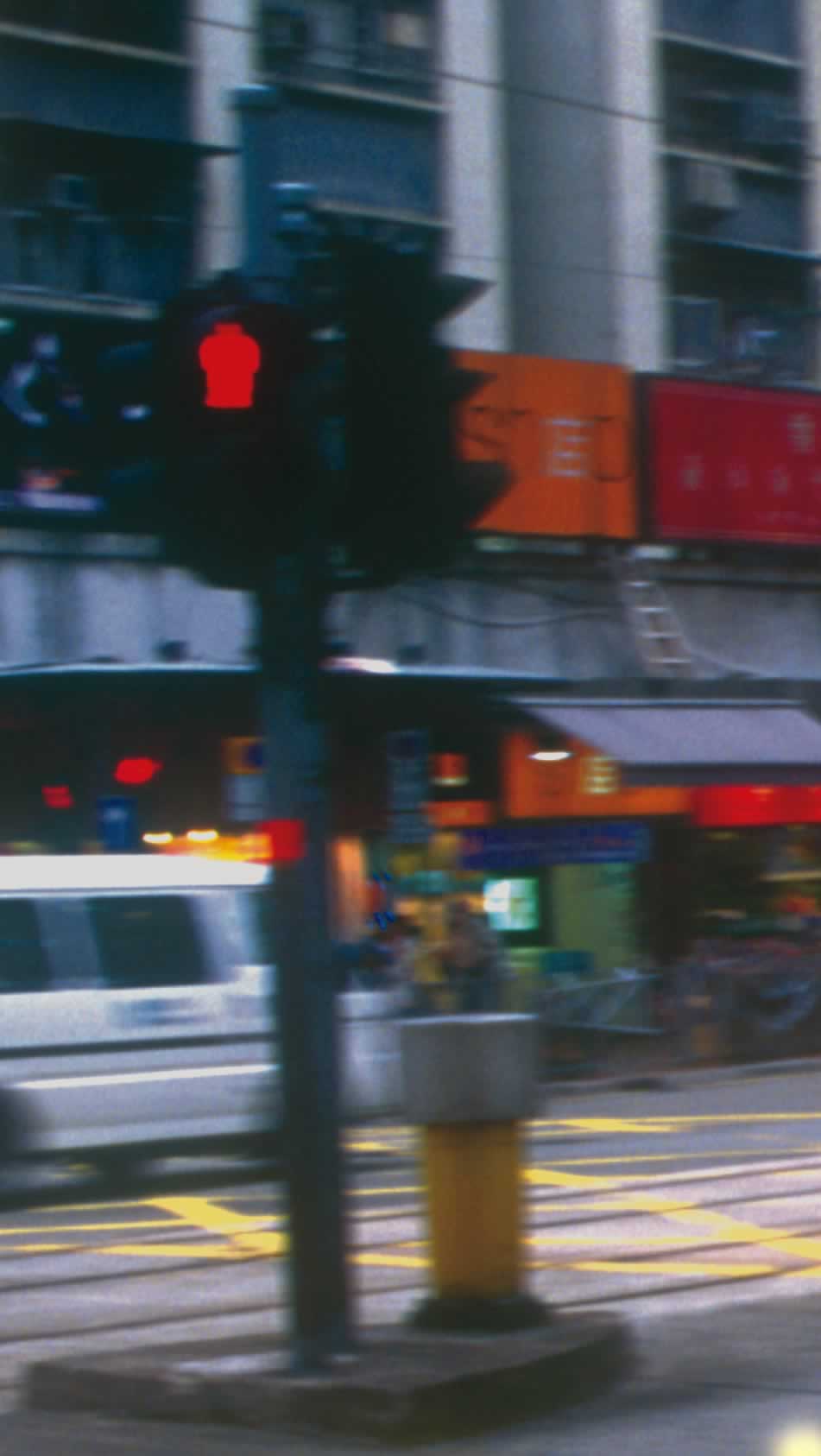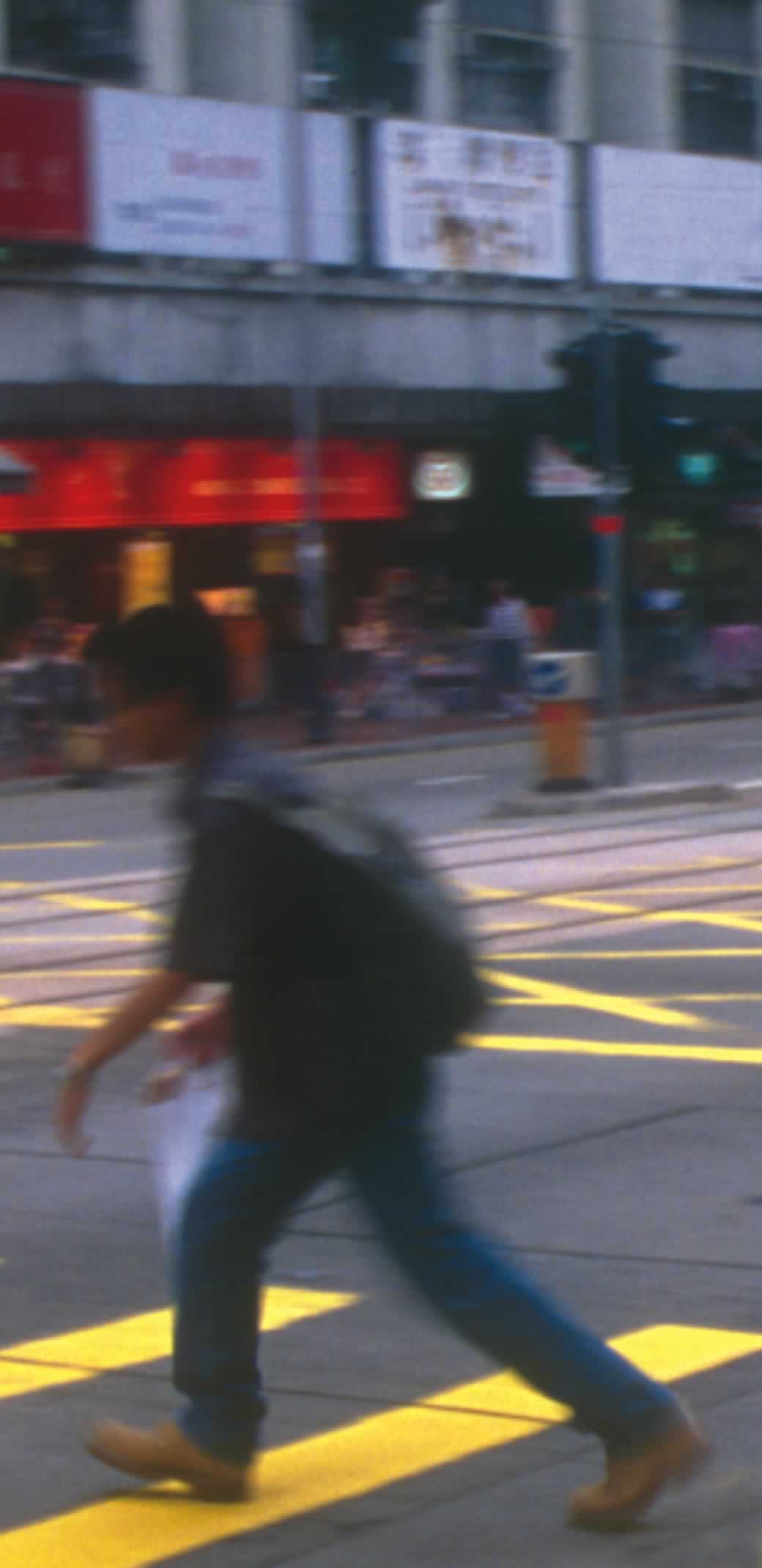Jaywalking
A problem waiting to be solved

By Iris Cheng & Sophia Yip
From 29 August to 29 October 2002, an average of three traffic accidents per week were caused by careless pedestrians.
On 28 October 2002, four traffic accidents happened in Fanling, Western District, Clearwater Bay and North Point. A primary school student was killed in Fanling. Two primary school students and a woman were injured.
According to the Police Department, 56 percent of the fatalities in traffic accidents are pedestrians, which is the highest among all categories of road users.
The cost of a fatal traffic accident to the economy is more than $2 million, according to the Transport Department. A likely cause of the loss is jaywalking.
But Betty Lam Cheung Suk Chi, a chief inspector, said that jaywalking is not the police department’s main target.
“It is easy to explain why the fatality rate is high,” said she. “Pedestrians are more vulnerable than drivers on the road.”
Ma Chun Wa, 30, a computer engineer, said he witnessed a police officer standing under a traffic light in Mong Kok, unable to stop the crowd of jaywalkers.
Mrs. Lam said, “It is not cost-effective to have a police officer stationed at every traffic light.
“We would have to hire thousands of officers to do so.”
Instead of law enforcement, the police focus on education. Mrs. Lam said that education will be more effective in the long run.
“We want citizens to be self-disciplined. But it takes time to see the effect,” said she.
At present, different districts operate independently against jaywalking, based on guidelines that Mrs. Lam refused to disclose.
Officers have the right to decide whether to give a warning or a summons to the offender. In general, more warnings are given than summonses.
“When their actions are obviously life- endangering, we will give jaywalkers a summons,” said Mrs Lam.
Chan Suk Mui, 26, a salesperson from Sau Mau Ping, was fined $300 for jaywalking. She has a friend who committed the same offence but received only a warning.
“It’s unfair,” said she. “I know I was wrong, but many people are doing the same thing.”
Mrs. Lam admitted that variations in enforcement methods by police officers cannot be avoided. However, she said that the officers are professional enough to make appropriate decisions by following the guidelines.
Meanwhile, the police are considering a fixed penalty system for jaywalking.
“We are observing the effect of the anti-littering policy,” said Henry Ho Ming Sun, superintendent of the Central Traffic Prosecutions Bureau.
Starting from 27 May 2002, anyone who commits offences such as littering, unauthorized display of bills or posters, and fouling the streets with dog droppings in Hong Kong is liable to a fixed penalty of $600.
In the past, offenders, if prosecuted, had to go on trial. The whole legal process would take four to five months. Under the new system, offenders are simply fined $600 on the spot.
Seven departments are responsible for the law enforcement. According to the Food and Environmental Hygiene Department, there were 60 to 70 littering invoices issued daily in 2001. From 10 June 2002, the number has dropped to 42.
Chan Yin Kum, a street cleaner in Mong Kok, said that people litter less under the new law.
“Argyle Street is cleaner now,” said she.
Under the Traffic Ordinance, jaywalkers can be fined up to $2,000, as decided by the court.
Fred Li Wah Ming, a Legislative Council member, said that the fixed penalty system is a good idea.
“It simplifies the law and saves time.”
He suggests the fine should be around $300 to $400.
He thinks the penalty should be similar to the one for illegal parking, which is about $300.
However, Mrs. Lam thinks the police cannot do what the Food and Environmental Hygiene Department is doing.
“They have a narrower scope of work. Their main job is to combat littering,” said she.
For the police, maintaining law and order is their most important job.
Then comes emergency cases and community relations.
Jaywalking is not their priority, Mrs. Lam explained.
“We have to prioritize our tasks and allocate the limited resources accordingly,” explained Miss Lam.
The new system is still under consideration, and Mr. Ho is not sure when a decision will be made.
“If we adopt a fixed penalty system for jaywalking along with littering, citizens may be confused,” said he.
.jpg)
